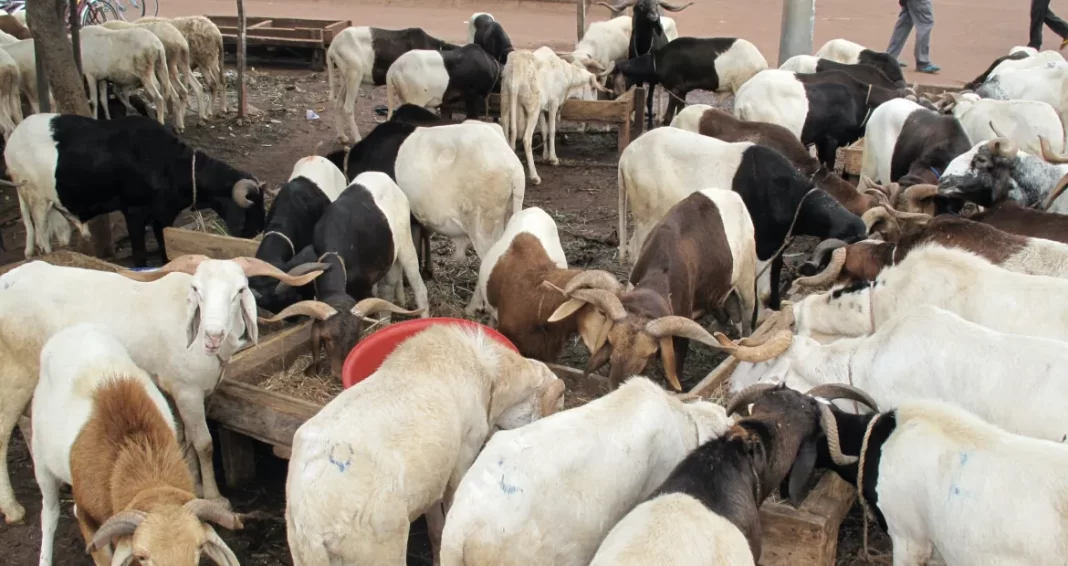Rearing for Food and Jobs (RFJ) is one of the modules of the government’s flagship agricultural programme, Planting for Food and Jobs (PFJ). The RFJ was a five-year programme that was to run from 2019 to 2023.
The objective of the RFJ was to develop a competitive and more efficient livestock industry that increases domestic production, reduces importation of livestock products, and contributes to employment generation, the improvement of livelihoods of livestock value chain actors, and the national economy.
This module was officially launched by H. E. President Nana Addo Dankwa Akufo Addo at Wa in the Upper West Region on June 25th, 2019. It is also aimed at addressing issues associated with livestock development in the country, including but not limited to; poor genetic quality of breeds used by farmers; poor nutrition and inadequate water resources for livestock; animal health; poor and inadequate livestock housing structures/equipment; inadequate agricultural extension service and developing and promoting the livestock value chain.
This campaign was designed to address the identified bottle-necks along five (5) key value chains which are: sheep, goats, pigs, poultry, and dairy cattle.
In 2019, 2,000 sheep were presented to farmers in the Upper East Region.
The farmers were to return lambs after successfully breeding the animals. Under the same programme, 2,500 cockerels were distributed to other farmers.
When Esther Agumah, the Director in Charge of Livestock at the Upper East Regional Department for Food and Agriculture, spoke to A1 Radio’s Mark Smith on the Day Break Upper Show, she mentioned the cockerels were to help improve the local breeds.
“The region took delivery of 2,000 small ruminants [sheep] and 2,500 cockerels. These were distributed to five districts. We had 40 beneficiaries per district for the ruminants and 50 beneficiaries for the cockerels. The purpose of these cockerels was to help improve the local breeds,” she said.
Kassena-Nankana West District, Kassena-Nankana Municipal, Nabdam District, Bongo District, and Bawku West District were the beneficiary districts, according to Madam Agumah.
The Director in charge of Livestock was worried about the disinterest in the fulfilment of agreed terms by the farmers.
“The farmers were supposed to pay back in kind. They were supposed to breed them [the sheep] raise them, and when they deliver, within two years, they will pay back in kind. They would give the animals to the district to be redistributed to other farmers. That was the idea behind the distribution of the small ruminants.”
“The recovery is very bad. Farmers are not willing to pay. Since the inception of this programme, we have been able to recover only 349. If you want to consider it, at least every sheep gives birth about 3 times in 2 years,” she said.
The comments of the Director in Charge of Livestock at the Upper East Regional Department for Food and Agriculture, Esther Agumah, were corroborated by the Upper East Regional Director for the Department of Agriculture, Alhaji Fuseini Zakaria, when he spoke on the same platform.
“I have personally gone out with her to reach out to those beneficiaries to see the possibility of repayment. This is a concept, and I would always emphasise the fact that sensitization is key. When you are bringing in a project, make sure that at least, one-quarter of it takes charge of sensitization. If you take your time and do your sensitization very well, I think you have done almost half of the work. It would not be seen that my party is in power, so this is a party bonus. It would also not appear that this is something for the government. The person would focus on it and work on it to make sure that it is fully sustained. I think sensitization is very key. I do not want to say they didn’t do sensitization very well, but as a matter of fact, when you are starting a project, the very key activity has to do with sensitization.”
Source: A1radioonline.com|101.1MHz|Mark Kwasi Ahumah Smith|Ghana


